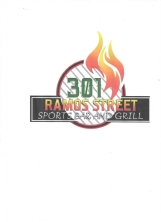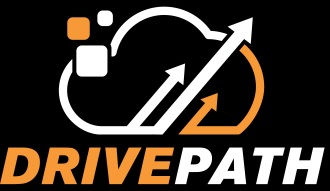While it’s an important part of the job search process, the résumé is only part of the hiring equation. People get hired because the employer sees potential in how they can offer value, will contribute to the growth of the company, and compliment other members of the team. The résumé is simply a document that lists what you’ve done in the past, to qualify you to move through a hiring process.
Your résumé is not your life story …
1. Speak to the culture of the employer. Before you send off a résumé, learn about the personality and culture of the company. Are they a fun, hip and outgoing group of employees? Does the company value a work/life balance? Do people tend to stay at the company a long time? These are indications of a strong culture, and hiring managers look for people who will fit in with that culture. Make sure your résumé highlights your desire to be part of a culture like the one the company promotes.
2. Make sure there are no typos or grammar errors. One thing recruiters and hiring managers can’t stand are mistakes on cover letters and résumés. In today’s age of spellcheck and Grammarly, there is no excuse for misspellings or grammatical mistakes. After you’ve written your résumé, ask three to four friends to proofread it for you. It’s worth it to avoid having an employer think you lack attention to detail.
3. Tie your military experience to the job you’re seeking to fill. I believe employers care about your military experience for a few reasons: 1. They are grateful for your commitment to serving your country and may feel a patriotic responsibility to hire veterans; 2. Your military experience makes you unique and interesting when compared to civilians competing for the same job; and 3. When you can directly tie your military training, accomplishments and values to the work you want to do next, you offer the employer the ability to hire new skills into the company, and thereby infuse new ideas and energy into teams.
4. Leave something for the interview. On a first date, you don’t tell your potential mate everything about yourself, do you? Your résumé shouldn’t contain every single thing you ever did. You will have an opportunity to expound on aspects of your background that tell more of a complete story during the interview. It might feel scary not to list everything you’ve ever done, but hiring managers scan résumés, they don’t read them cover to cover like a novel. Include the aspects of your background that are most relevant to the job you’re applying for toward the top of your résumé.
5. Keywords and key phrases. Remember to use keywords and phrases found on the company website and in the job description. If the company uses the term "logistics program manager” use that language when describing your desired role and experience. Resist the urge to stick to the literal definition of the work you did … employers care about keywords that match what they are scanning for.
6. Bullet points of accomplishments. As stated above, your résumé isn’t a novel – it’s a listing of successes and experience. Bulleted lists are easy to read and easy to scan for recruiters and hiring teams. Short. Sweet. Impactful – your bulleted lists will take up more room on your résumé, but if they are focused and keyword-loaded, employers will want to read more.
7. Include a compelling and interesting cover letter. Your cover letter gives you the opportunity to tell the complete story of who you are, what you’re looking for, and why your résumé should get the employer’s attention. In your cover letter, use the keywords that are important to the job description, explain any gaps in your résumé, and clarify any concerns you think the employer might find. In a concise way, list out your significant accomplishments and emphasize that you are interested in speaking with the company about the open position.
A well-written and customized résumé (and cover letter) will help you stand out as a qualified candidate. Put yourself in the position of the reader: What do they want to see? What are they concerned about? What would delight them to see on your résumé? Speak the language of the employer and you increase the odds of getting the interview!
Developed through the VFW’s collaboration with Lida Citroën of the international brand strategy firm LIDA360, this article is part of the VFW’s expanding education and transitioning services, resources and webinars designed to provide service members and veterans transitioning to the civilian workforce with an opportunity to learn about personal branding and strategies for navigating the job search process. To learn more about Lida’s commitment to the veteran community, check out her recent TEDX talk.
Join us for our free webinar with Lida on November 28, 2017, at 2 p.m. CST on Creating a Powerful Résumé & Cover Letter. Register today.
By Lida Citroën, CEO, LIDA360
Résumés List Your Past
An effective résumé should include a comprehensive and readable listing of your career experiences, volunteer activities, training, certification, education and any relevant talents in particular that the potential employer will be looking for.Your résumé is not your life story …
Make Your Résumé Stand Out
Your résumé only gets noticed when it’s relevant and compelling to your target audience: the potential employer. To make your résumé stand out, remember these tips:1. Speak to the culture of the employer. Before you send off a résumé, learn about the personality and culture of the company. Are they a fun, hip and outgoing group of employees? Does the company value a work/life balance? Do people tend to stay at the company a long time? These are indications of a strong culture, and hiring managers look for people who will fit in with that culture. Make sure your résumé highlights your desire to be part of a culture like the one the company promotes.
2. Make sure there are no typos or grammar errors. One thing recruiters and hiring managers can’t stand are mistakes on cover letters and résumés. In today’s age of spellcheck and Grammarly, there is no excuse for misspellings or grammatical mistakes. After you’ve written your résumé, ask three to four friends to proofread it for you. It’s worth it to avoid having an employer think you lack attention to detail.
3. Tie your military experience to the job you’re seeking to fill. I believe employers care about your military experience for a few reasons: 1. They are grateful for your commitment to serving your country and may feel a patriotic responsibility to hire veterans; 2. Your military experience makes you unique and interesting when compared to civilians competing for the same job; and 3. When you can directly tie your military training, accomplishments and values to the work you want to do next, you offer the employer the ability to hire new skills into the company, and thereby infuse new ideas and energy into teams.
4. Leave something for the interview. On a first date, you don’t tell your potential mate everything about yourself, do you? Your résumé shouldn’t contain every single thing you ever did. You will have an opportunity to expound on aspects of your background that tell more of a complete story during the interview. It might feel scary not to list everything you’ve ever done, but hiring managers scan résumés, they don’t read them cover to cover like a novel. Include the aspects of your background that are most relevant to the job you’re applying for toward the top of your résumé.
5. Keywords and key phrases. Remember to use keywords and phrases found on the company website and in the job description. If the company uses the term "logistics program manager” use that language when describing your desired role and experience. Resist the urge to stick to the literal definition of the work you did … employers care about keywords that match what they are scanning for.
6. Bullet points of accomplishments. As stated above, your résumé isn’t a novel – it’s a listing of successes and experience. Bulleted lists are easy to read and easy to scan for recruiters and hiring teams. Short. Sweet. Impactful – your bulleted lists will take up more room on your résumé, but if they are focused and keyword-loaded, employers will want to read more.
7. Include a compelling and interesting cover letter. Your cover letter gives you the opportunity to tell the complete story of who you are, what you’re looking for, and why your résumé should get the employer’s attention. In your cover letter, use the keywords that are important to the job description, explain any gaps in your résumé, and clarify any concerns you think the employer might find. In a concise way, list out your significant accomplishments and emphasize that you are interested in speaking with the company about the open position.
A well-written and customized résumé (and cover letter) will help you stand out as a qualified candidate. Put yourself in the position of the reader: What do they want to see? What are they concerned about? What would delight them to see on your résumé? Speak the language of the employer and you increase the odds of getting the interview!
Developed through the VFW’s collaboration with Lida Citroën of the international brand strategy firm LIDA360, this article is part of the VFW’s expanding education and transitioning services, resources and webinars designed to provide service members and veterans transitioning to the civilian workforce with an opportunity to learn about personal branding and strategies for navigating the job search process. To learn more about Lida’s commitment to the veteran community, check out her recent TEDX talk.
Join us for our free webinar with Lida on November 28, 2017, at 2 p.m. CST on Creating a Powerful Résumé & Cover Letter. Register today.
By Lida Citroën, CEO, LIDA360


